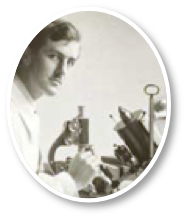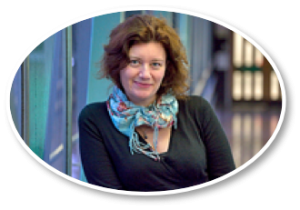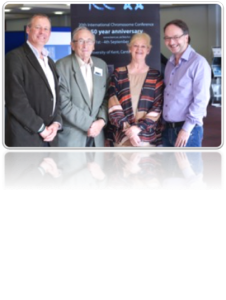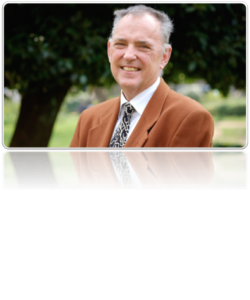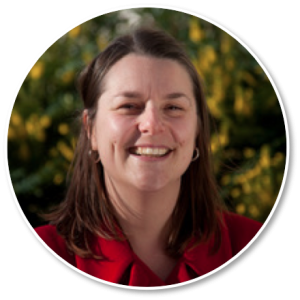A new art exhibition in Canterbury organized by two University academics put the spotlight on the hidden side of science – and revealed the role of a ‘lucky rabbit’ as an unlikely source of inspiration in one laboratory.Entitled “Chain Reaction!”, the exhibition marked the 30th anniversary of the development for laboratory use of the Polymerase Chain Reaction (PCR) procedure. PCR multiplies fragments of DNA, and has ensured advances in genetic science such as forensic analysis and diagnostic tests in IVF embryos and prenatal samples. Charlotte Sleigh and Dr Dan Lloyd worked together to organize the exhibition that ran from 22 November-21 December 2013 at the city’s Sidney Cooper Gallery. A pervading theme of the exhibition, through the work of six artists, was that science through the ages should not be seen as big breakthrough moments, but rather as a series of unsung processes.
Charlotte said: “Science is not all about fancy ideas or extraordinary outcomes. Simple and basic graft is the biggest part of it. This is a show not about the products, but about the processes of science and the people involved.”
“Sometimes PCR simply doesn’t work and the scientists themselves don’t know why. Dealing with this can introduce an element of irrational ritual into what they do; I know of one laboratory where the scientists ‘believe’ that each time they see a rabbit in the woods the PCR will work.”
Two of the artworks on display in the exhibition, Stig Evans’ painting Ritual and his prayer kneelers embroidered with DNA, playfully respond to this rarely discussed aspect of science As well as Stig Evans, among the other artists exhibiting are Annie Halliday, whose work Sum of the Parts explores the key concepts of doubling and copying implicit in the PCR process, and Tony Stallard, whose work Mutation explores the nature of mutation, both in genetics and as a random variable.Dan said: “The process of artists working with scientists has revealed true insights into how science works. It has been fascinating to see how artists and scientists alike have explored PCR and communicated its significance in this exhibition. In doing so, they have learned so much about each other’s practice – as well as their own.”

